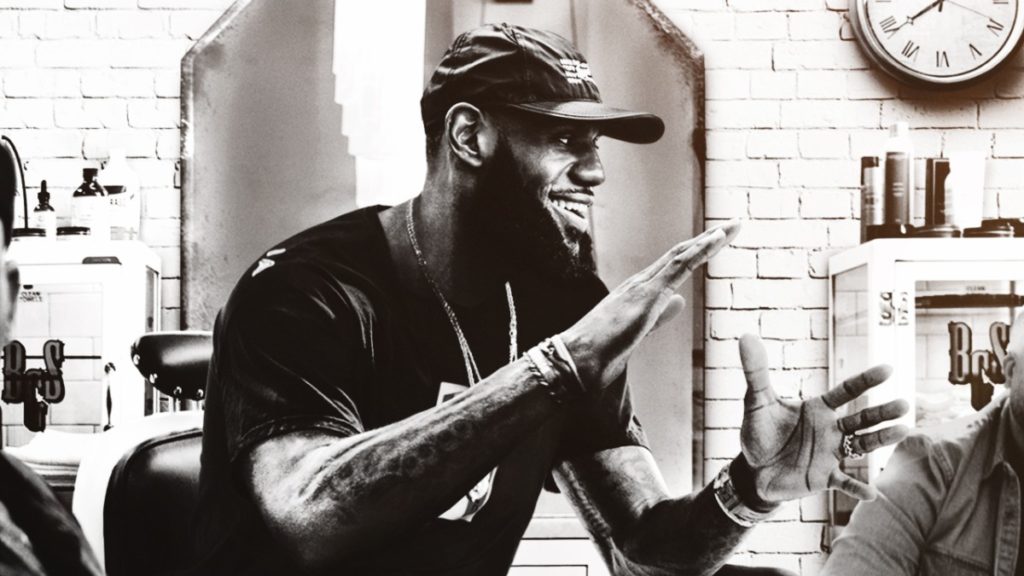
“When I was a kid, I asked my mom one time, ‘Where’s dad?’ She shut that shit down early. [She said], ‘I got this. It’s just me and you.’”
This is LeBron James on his HBO talk show, The Shop, candidly recounting his experience growing up without a father. Born to a sophomore in high school, the odds were stacked against him. But as we see today, LeBron James didn’t just survive despite the absence of his father—he thrived because of the purpose it instilled in him.
“My whole life I grew up resenting my father. Everything was like, ‘Fuck pops, he left me. Why would he do that to my mom?’ My mom was sixteen years old when she had me. And I was like, if I ever met him, we’re going to blows,” James explained. “As I got older and as I became more of an adult, I started to realize and think to myself, ‘Damn, what was he going through?’ Was it things that he couldn’t control? He’s the reason I am the father I am today. Because I always wanted to set an example and have the father figure in [my kids’] lives so they never had that resentment.”
Instead of succumbing to the anger he harbored against his father, LeBron bent it into a tool that he could wield to become the father, husband, and person his dad never was. It was by reflecting upon the man he didn’t want to become that unlocked his potential.
He’s onto something.
From preschool to the professional world, we are urged to find role models. We write essays, read books, and learn about the men and women who “made it” in hopes that we can replicate their success—even a fraction of it. We are prodded with questions like: Who do you admire? Who is your mentor? Who do you want to become?
These are valid, but they fail to address the question that’s equally important, yet often ignored: Who do you not want to be? In other words, who is your anti-model?
Most of us mock or shame the losers, idiots, and crooks we see in the media or in our own lives. We are disgusted by the millionaire who neglects his kids, the politician whose life is plagued by scandals, the neighbor having an affair. We are told to turn a blind eye towards these people, but it’s actually studying them closely that gives us the advantage.
“Fools learn from experience,” said Otto von Bismarck. “I prefer to learn from the experience of others.”
If you can’t define who you don’t want to be, your odds of becoming that person soar upward. Having an anti-model solves this problem. Find someone whose life is a train wreck. In LeBron’s case, it was his (absent) father. Maybe it’s your tyrannical boss, an insane relative, or a crooked public figure. Examine the decisions they’ve made, the people they associate with, how they live, how they’ve fucked up. No need to waste your energy casting judgement—just counter-imitate them. Notice how they give you an instruction manual for living a miserable life.
Do the inverse.
In philosophy this is called Via Negativa—the Negative Way—which aims to describe a concept by defining what it is not, rather than what it is. It’s a recipe for what to avoid, which tends to work better in domains that are opaque and open-ended, i.e. what you should do with your life.
Growing up (and still today), I never had someone who fit neatly into the definition of “role model.” There are plenty of people whom I respect and ask for advice. But replicate their lives? Absolutely not.
When you idolize people, you set yourself up for disappointment. You become so entrenched in who they are that you lose track of who you are. Role models, left unchecked, blunt idiosyncrasies.
Not to mention, what if this person you adore turns out to be a complete monster? Prior to 2009, Tiger Woods was the ultimate role model for young golfers across the world. Then they found out he was having sex with strangers in pancake houses and church parking lots.
To set the record straight, this isn’t an argument against role models—it’s an argument that anti-models can add as much (if not more) value to your life. We squander so much precious time defining what success looks like. The problem is, that definition of “success” fluctuates daily—sometimes hourly.
Better to define failure and let success define itself.
Have you read these five books to base your life on? Get the list, plus seven strategies I stole from legendary marketers to promote your work.